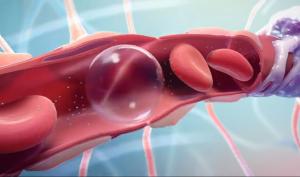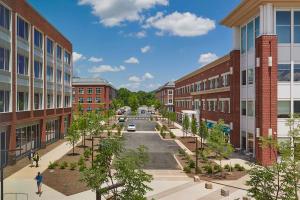Systems Biology & Biomedical Data Science
Distinctive Features
Tackling complex challenges in human health requires the systematic analysis of molecular, cellular, and multi-cellular processes in a quantitative framework. Rich datasets emerge from the development and application of cutting-edge experimental methods that deeply interrogate cell-tissue-organ physiology. Integration of these big data is achieved through predictive computational models that are scalable, flexible, and quantitatively rigorous.
We have a strong emphasis on clinical issues of cardiovascular disease, cancer and infectious diseases. Rather than focusing on comprehensive description of tractable model organisms such as E. coli or yeast or a specific domain such as agricultural biotechnology, our faculty focus on major diseases that are intractable without a systems viewpoint.
Our faculty have ongoing collaborations with physicians and basic scientists in the UVA School of Medicine. There are particularly well-established collaborations with the Cancer Center, Cardiovascular Research Center, Division of Infectious Diseases and Center for Public Health Genomics. Hiring in systems immunology is robust, leveraging relationships with the Carter Center for Immunology. We will continue to hire in biomedical data sciences, strengthening relationships with the School of Data Science, the Center for Public Health Genomics, and the Department of Computer Science.
The majority of our labs integrate both computational and experimental approaches. This integration provides a rich training experience and helps to keep the research programs focused on biomedical challenges.
National Science Foundation Research Experience for Undergraduates
NSF REU in Multi-Scale Systems Bioengineering and Biomedical Data Science (PI, Timothy Allen)
National Institutes of Health Institutional Training Award for PhD Trainees
NIH T32 in Systems Biomolecular Data Science (Co-PI Jason Papin, Kevin Janes)
BME Primary Faculty in this Area
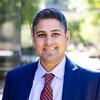
Sameer Bajikar, Ph.D.
Sameer Bajikar uses multidisciplinary approaches from human stem cells to computational models to understand how brain function goes awry in neurodevelopmental disorders to engineer new therapies for these diseases.
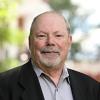
Philip E. Bourne, Ph.D.
Philip E. Bourne leads a range of initiatives to encourage and facilitate the use of big data in large-scale research across the scientific and technological disciplines, with special emphasis on structural bioinformatics and systems pharmacology.
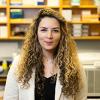
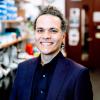
Dr. Fallahi-Sichani leads a Systems Biology research program aiming to discover the fundamental mechanisms through which human cancer cells respond heterogeneously to environmental and therapeutic perturbations.

Kevin Janes designs and uses systems bioengineering approaches to analyze cell signaling and transcriptional networks in cancer and infectious disease.
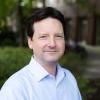
Matthew J. Lazzara
Work in the Lazzara Lab employs a combination of experimental and computational methods to study problems in cell signaling, the complex biochemical process cells use to make decisions.
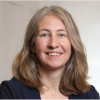
Kristen Naegle, Ph.D.
Kristen Naegle uses data- and computational-driven approaches to predict, and experimental approaches to test, the regulation and function of tyrosine phosphorylation in complex networks.

Jason Papin, Ph.D.
Jason Papin, Professor in the Department of Biomedical Engineering, develops computational models of cellular networks and performs experiments to characterize biological systems relevant to human disease. After his training in Bioengineering at University of California, San Diego, Jason Papin joined the faculty at University of Virginia in 2005.

Shayn Peirce-Cottler, Ph.D.
Shayn Peirce-Cottler develops computational models and combines them with wet lab experiments and machine learning to study how tissues heal after injury and to develop new therapies for inducing tissue regeneration.
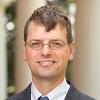
Gustavo Kunde Rohde, Ph.D.
Dr. Rohde develops computational predictive models with applications in pathology, radiology, systems biology, and mobile sensing.

Jeff Saucerman, PhD, Professor of Biomedical Engineering, combines computational models and high-throughput experiments to discover molecular networks and drugs that control cardiac remodeling.
Natasha Diba Sheybani, Ph.D.
Dr. Sheybani leads a translational research program centered on innovating tools and paradigms for non-invasive precision cancer management.

Aidong Zhang
Aidong Zhang's research focuses on developing machine learning approaches to interpretable and fair learning, concept-based learning, federated learning, and generative AI and applications to medicine. She also works on large language models for hypothesis generations for scientific discovery.
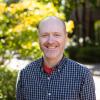
Eli Zunder analyzes stem cell fate using single cell mass cytometry and high-dimensional modeling of cell lineage trajectories. He received his Ph.D. in Biophysics from UCSF in 2009.
Joint Faculty in Biomedical Data Sciences and Systems Biology
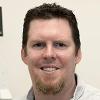
Christopher Deppmann
Christopher Deppman has been interested in the mechanisms underlying long-distance signaling in the context of nervous system development since he was a post-doctoral fellow at Johns Hopkins University School of Medicine in the laboratory of David Ginty (now at Harvard).

Clint Miller
Clint Miller studies the genetic and environmental risk factors for coronary artery disease and other complex cardiovascular diseases using a combination of large-scale multi-omics profiling and genetic and drug perturbations. He is an Assistant Professor in Public Health Sciences and a resident member of the Center for Public Health Genomics.
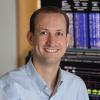
Nathan Sheffield

Chongzhi Zang
Dr. Chongzhi Zang is an associate professor and resident faculty member in the Center for Public Health Genomics, University of Virginia. He holds faculty appointments in the Departments of Public Health Sciences, Biomedical Engineering, and Biochemistry and Molecular Genetics.
